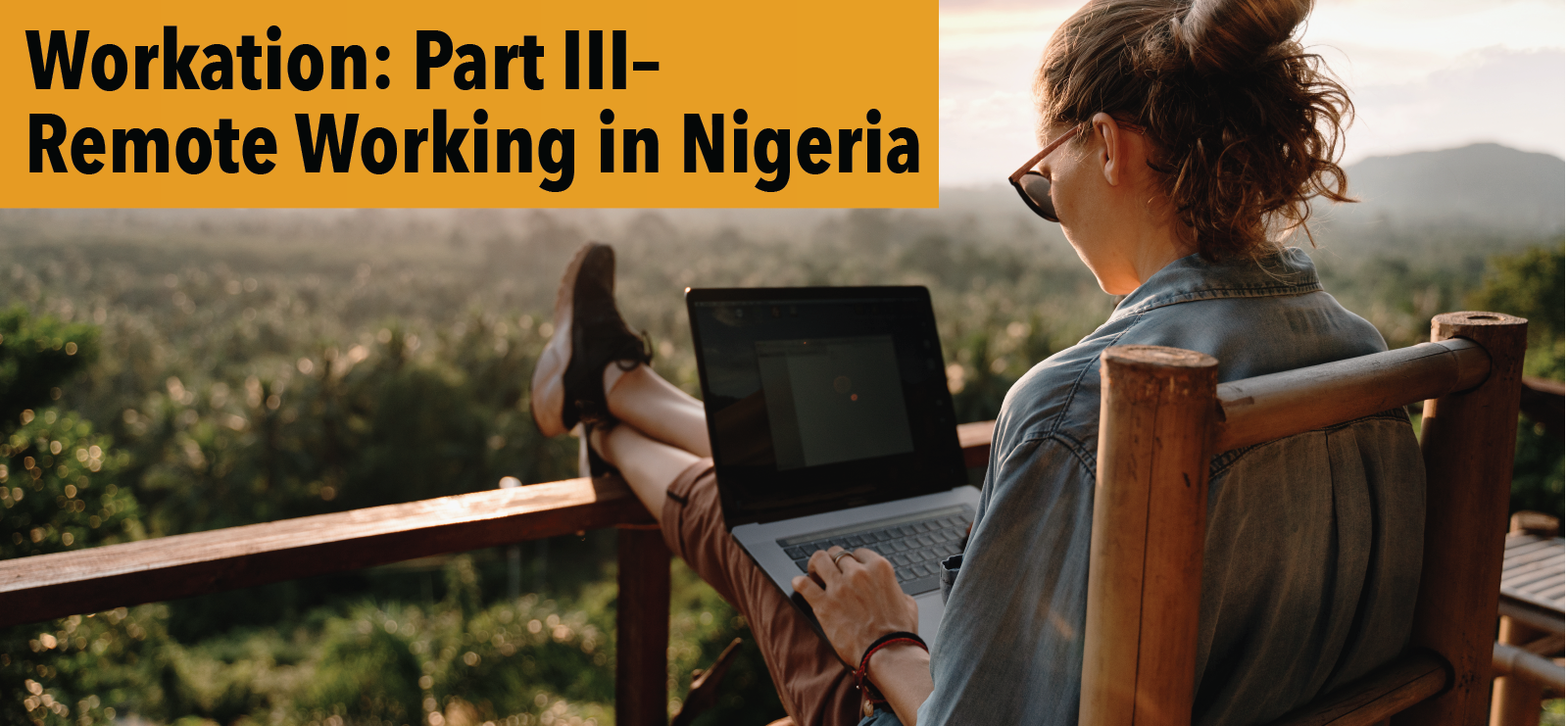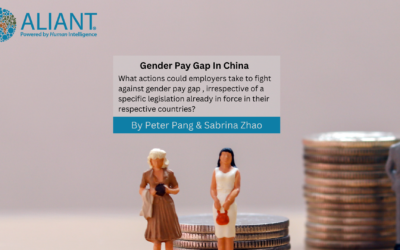REMOTE WORK IN NIGERIA
Is your employee asking to work remotely from abroad? Technologies make it possible, but what are the legal implications?
Our Labor & Employement Practice Area Group shared their insights and experiences on topic of “workaction”, i.e work-from-anywhere in the different jurisdictions outlining the main issues that an employer should take into consideration. We have created a seven part series on this topic.
Part III of VII explains Nigirian position on this topic.
Background
Since the Covid pandemic lockdowns in early 2020, the notion that the employers’ office/location is the designated workplace of an employee has greatly evolved to include an employee’s home or any other location. Nigerian employers have also embraced the new concept of ‘work from home’ or work from anywhere with some corporations also operating hybrid or flexible work arrangements. Advisedly, employers who allow remote work for their employees should proactively update their employee employment contracts to specify the terms and conditions for working remotely and/or issue guidelines and policies to ensure that workflows and processes remain seamlessly managed.
LEGAL POSITION IN NIGERIA
Currently, Nigeria has no laws currently regulating ‘remote work’. The Labour Act, Chapter L1, Laws of the Federation of Nigeria 2004 which is the main law that governs employment relationships in Nigeria does not contain any express provision on remote work, neither has any other regulation been issued by the government on the subject. The Labour Act provides that not later than three months after the beginning of a worker’s period of employment with an employer, the employer shall give to the worker a written contract of employment and that will subsist as the basis of their contractual relationship. The contract of employment issued by an employer to an employee in the era of remote work should be well structured to give cognizance to ‘remote work’ issues.
Social security and insurance against accident at work
The Employees Compensation Act 2010 (ECA) provide succor for employees in case of injury at the workplace. The ECA make provisions for compensations for any death, injury, disease or disability arising out of or in the course of employment, and for related matters whether at usual place of work or outside of it.
In essence, there are two major determinants of whether an employee is entitled to any compensation under the ECA. The first is whether the injury occurred or arose out of and in the course of his employment (job-related). The second is whether he is an employee or not in the employment of the employer.
The ECA establishes the Employee Compensation Fund (ECF) managed by the Nigerian Social Insurance Trust Fund Board (NSTIF). All employers in Nigeria are mandated to remit 1% of their total monthly payroll into the ECF to compensate employees who suffer death or permanent incapacitation resulting from accidents in the course of their employment. Employees are exempted from making contribution(s) to the ECF as the ECA imposes sanctions against employers who attempt to deduct funds payable from the remuneration of their employees.
Employers have a duty of ensuring that employees carry out their work in the safest possible way bearing in mind the type of job, the materials and equipment required for the job as well as the tasks involved whether the employee works remotely or at the designated office space.
Tax Risk for The Company (Permanent Establishment)
The Personal Income Tax Act imposes tax on both resident and non-resident individuals. While a resident individual is generally subject to tax on his/her world-wide income a non-resident individual is liable to pay tax on any income or profit derived from Nigeria. Under the Pay-As-You-Earn (PAYE) system, Nigerian employers are mandated to deduct and remit tax on behalf of both resident and non-resident employees to the relevant tax authority (RTA). For resident individuals, the RTA for a year of assessment is the tax authority of any state in Nigeria in which such individual is deemed to be resident in that year (where the employee spends a minimum of 183 days in a 12-month period.) Therefore, an employee working remotely for an organization in Abuja (Federal Capital Territory of Nigeria) but living in another state e.g., Rivers State, must remit his/her tax to the Rivers State Internal Revenue Services as the RTA for his tax domicile.
Immigration
In Nigeria, any company seeking to employ a non-Nigerian must seek the consent of the Comptroller General of the Nigerian Immigration Service (NIS) and obtain an Expatriate Quota from the NIS while the employee must obtain the Combined Expatriate Residence Permit and Alien Card (CERPAC). On the other hand, given the current rise in remote workers, many Nigerians are being hired by foreign companies without the need to leave the country, however they may be subject to each country’s laws regarding foreign employees.
Please follow these short series for Part IV where we will explore Italian government’s position on the topic of “workation”.
Follow us on LinkedIn..






